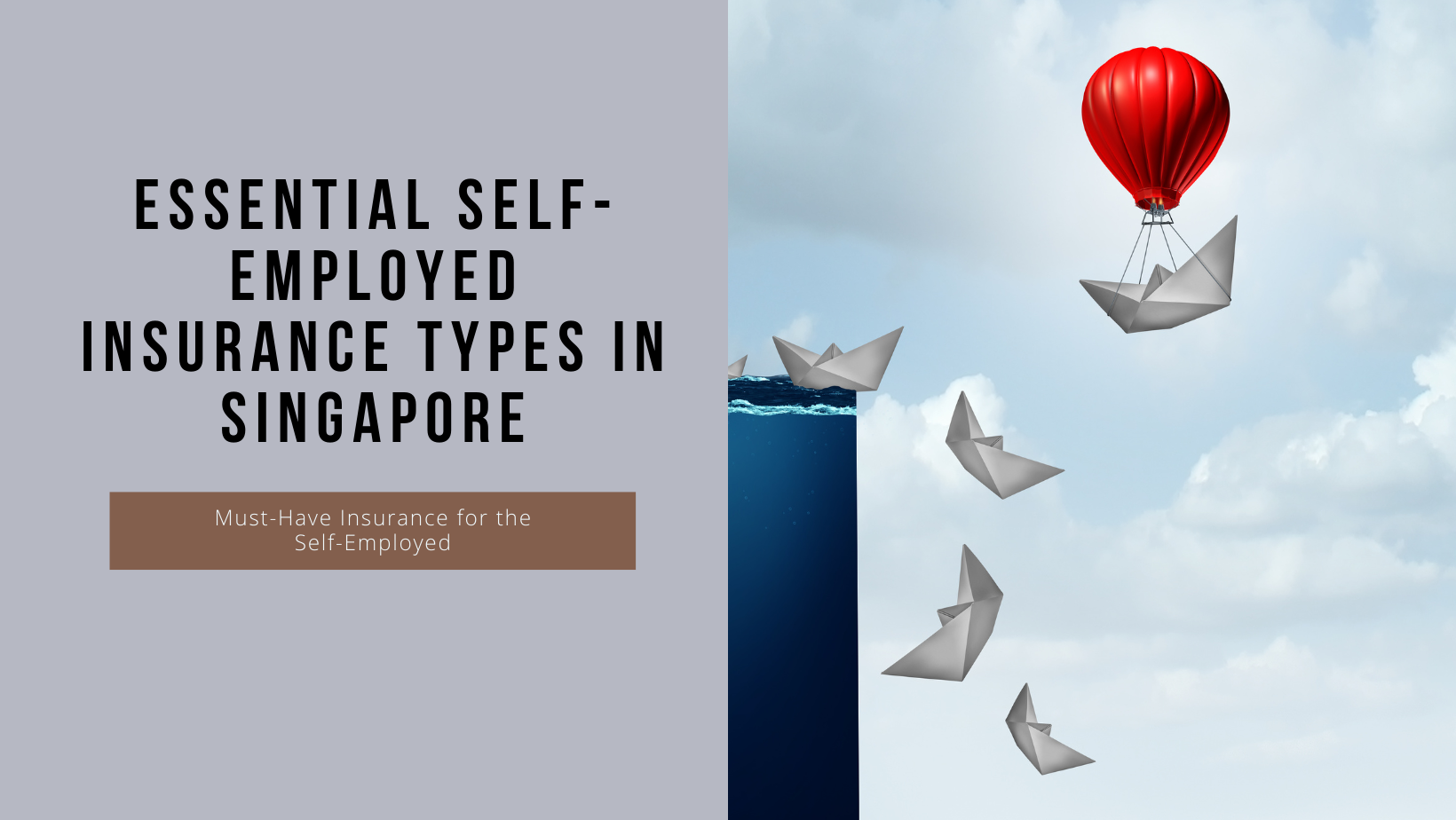Self-Employed Insurance: Are You Fully Covered?
The world of self-employed insurance can be confusing, but it’s vital for safeguarding your livelihood. When you’re your own boss, the freedom is exhilarating. No more 9-to-5 grinds or office politics! But with that freedom comes a whole new level of responsibility – including making sure you’re financially protected if things take an unexpected turn. That’s where self-employed insurance comes in.
Why do Freelancers and Sole Proprietors Need Insurance?
Unlike traditional employees, being self-employed means you don’t have benefits like company-sponsored health insurance or paid sick leave.

An unexpected illness, accident, or even damage to your equipment could leave you seriously out of pocket. Here’s why insurance is a must for the self-employed in Singapore:
- Firstly, protection against health risks: Unexpected medical bills can be crippling. Self-employed insurance plans can cover hospitalization costs and even critical illnesses. As a freelancer, self-employed insurance gives you this coverage.
- Secondly, income protection: If you can’t work due to illness or injury, disability income insurance can provide a lifeline to ensure your bills still get paid.
- Thirdly, safeguarding your work: Professional indemnity insurance is essential for many freelancers and protects you financially in case of client disputes or errors you might make.
- Covering your equipment: If you rely on tech, tools, or specialized equipment for your income, having insurance that protects them is crucial.
Must-Have Types of Self-Employed Insurance
There are several essential types of self-employed insurance depending on your individual needs.

Let’s look at some essential types of in Singapore: To begin with,
-
Health Insurance: Options like Integrated Shield Plans (IPs) with additional riders, or private health insurance offer flexibility and cover hospitalization, surgical costs, and outpatient treatments. Some people may want to supplement their coverage further with a CareShield Life Supplement plan.
-
Additionally, Income Protection Insurance: This helps cover your lost income if you are unable to work due to illness or accidents for an extended period.
-
Professional Indemnity Insurance This is crucial if you provide services to clients. It covers potential losses caused by errors, negligence, or omissions in your professional work.
-
Business Insurance: This covers assets (like your workspace or equipment) as well as potential liability from injuries to visitors or third-party property damage. Some types of business insurance may be compulsory depending on your business structure.
Tips for Choosing the Right Self-Employed Insurance
- Above all, assess your risks carefully: Different careers have different risk profiles. Self-employed insurance needs vary, so carefully assess your risks. Make a list of the things most likely to disrupt your income.
- Also, shop around: Get quotes from different insurers in Singapore to compare coverage and premiums.
- Furthermore, consider a bundled plan: Insurers often offer packages tailored for freelancers or specific industries, which can be a cost-effective option.
- Be aware of exclusions: Read policy documents carefully to understand what ISN’T covered.
Additional Considerations for the Self-Employed
Insurance is essential, but don’t stop there!

Let’s look at other financial strategies that will bolster your self-employed success:
-
Medisave: As a self-employed person, you’ll be responsible for your own Medisave contributions. These can be used for some healthcare expenses. Remember, you need to make contributions based on a percentage of your net trade income. Here’s an example:
If your annual net trade income is $30,000, and the Medisave contribution rate is 9%, you’ll need to contribute $2,700 to your Medisave account.
-
Retirement savings for Self Employed: Build your CPF contributions and consider voluntary top-ups for your future financial security. Even small, regular contributions add up over time. For example:
If you top up your CPF Special Account by just $500 per month at a 4% interest rate, over 20 years, you’d have accumulated approximately $165,000 with interest.
-
Emergency fund: Aim to save at least 3-6 months’ worth of living expenses in case of unexpected income disruptions. To calculate this:
If your monthly expenses are $3,000, an ideal emergency fund would be between $9,000 to $18,000.
Financial Essentials for the Self-Employed
These are just simplified examples. Your individual financial needs and contribution amounts will depend on your specific circumstances.
Be Your Own Boss: Self-Employed Insurance is the Bottom Line
Being self-employed is amazing, but don’t take your financial protection lightly. Self-employed insurance is your safety net, allowing you to navigate any bumps in the road with greater peace of mind. In conclusion, by making smart insurance choices now, you invest in your business and in your own future.

Need help choosing self-employed insurance? Contact us for a free consultation.



